Edith Stein, Phenomenology and Analytic Theology...
Interview by Richard Marshall.
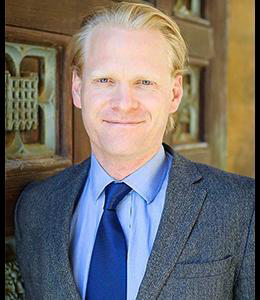
'Stein emerges from a chaotic flux of philosophical movements in fin-de-siècle Germany as one of the most promising exponents of the early phenomenological movement. She was one of the first women in Germany to receive a doctorate, which was published soon after as On the Problem of Empathy, a work that continues to inform contemporary discussion on the topic. '
' At one point Heidegger is surprisingly well-disposed towards theological conception of time, describing the theologian as ‘the true expert on time’ on the basis that she deals with the self (or ‘Dasein’) in its relation to God, to eternity, to that which lies beyond time.'
' If we take seriously French existentialism’s later stress on ‘alienation,’ Stein would have asked: alienation from what? She claims that it could not be the ‘thrown’ phenomenological subject that sustains its conscious life; consciousness is, rather, received being, being as a gift, the paradigmatic acte gratuit that places me in my world and sustains me from moment to moment.'
'The complaint that Heidegger banishes a metaphysics of the subject only to let it in through the back door is a familiar (and contested) one. But as far as I can tell, Stein was one of the very first to raise these criticisms, even if her persecution and eventual murder by the Nazis meant that they were not published till long after other responses to it had begun to emerge.'
'Decades before Darwin, Kant recognised how dangerous attempts to achieve theoretical certainty of God’s existence via scientific speculation would be to the theologian’s credibility. Most obviously, such attempts always end up inferring a demiurgic architect of the world, and not the transcendent source of all being.'
'It’s hard to dispute that there has been an astonishing revolution in the range and quality of serious analytic work in philosophy of religion over the last fifty years, work that has been of great benefit to academic philosophy more generally.'
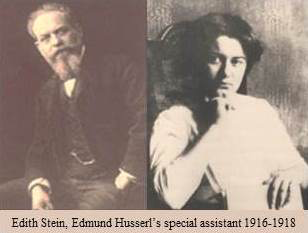
James Orr's research spans topics and thinkers on both the continental and analytic traditions of philosophical theology and theological ethics. His current work engages recent attempts to formulate a coherent theory of value. Here he discusses Edith Stein, Heidegger's revisionist account of time, existentialism, phenomenology, Stein's theological engagement with Heidegger, the influence of Kant's transcendental arguments, Heidegger's errors regarding Aquinas, Stein's critique of Heidegger's reading of Descartes and his attempt to banish metaphysics, teleology as a theological problem in Kant’s pre-Critical thought, Cartwright's escape, and whether what is called continental philosophy is actually a kind of critique of analytical theology.
3:AM: What made you become a philosopher?
James Orr: There was no Damascene moment, but important seeds were sown at school by a terrifying but brilliant school-teacher who led a small group of us in a painstaking reading of the first book of the Republic. He was obsessed with every nuance of the Greek—right down to the last ‘particle’—but I do distinctly recall the philosophical excitement he conveyed when explaining the distinctions between the moral nihilism of the thuggish Thrasymachus, the pious conventionalism of Cephalus & Sons, and the high-octane realism of Socrates. I continued to read Plato when studying classics at university, but at the time I was much more interested in classical literature and ancient history. I suppose my first proper immersion in philosophy didn’t really begin until a backpacking trip in America. I raided the philosophy section of so many second-hand bookshops that I remember getting very bad backache and having to ship most of the books back to England; but reading philosophy somehow made all those long Greyhound and Amtrak rides pass by in a flash. My reading was predictably chaotic, but one unifying theme was a deepening interest in the philosophical plausibility of religious commitment: metaphysical issues arising from standard arguments for and against the existence of God (plus a few more exotic ones), divine attributes, epistemic justifications for religious belief, revelation and history, theism and metaethics, analogy and religious language, Hume on miracles and causation, and so on.
After four years working as a lawyer in London during the week and spending a few too many weekends in the philosophy and theology libraries at Heythrop College and King’s College in London, my wife gently suggested that I consider doing graduate studies. So I gave up the law and applied to the theology faculty in Cambridge to do graduate research in the philosophy of religion (or, as it is often called there, ‘philosophical theology’). This was a good decision: though I did not realise it at the time, few other faculties would have encouraged me not only to develop an ambidexterity in analytic and continental philosophy, but also to attune myself to the historical pedigree of the many and varied problems they address (especially in the philosophical theology of the long middle ages). I suppose I have been trying to tread those tightropes ever since. Philosophy of religion turned out to be an ideal pedagogical gateway into philosophy (I remain convinced, in fact, that it is the best way in, irrespective of one’s stance on the God Question). No other field resists the ghettoization of academic philosophy so successfully; and no other field makes it so hard to ignore the historical hinterlands from which its major debates emerge: one simply can’t study philosophy of religion without patiently and charitably reconstructing the arguments of the past. That second point is especially important in the context of analytic philosophy, given its notorious tone-deafness to the history of ideas (though things are very much better than they were). Sensitivity to historical context in studying philosophy has the welcome benefit of ‘making strange’ our own assumptions, as Bernard Williams once put it. All of which is to say that my becoming a philosopher was (to coin a phrase) a case of faith seeking greater understanding.
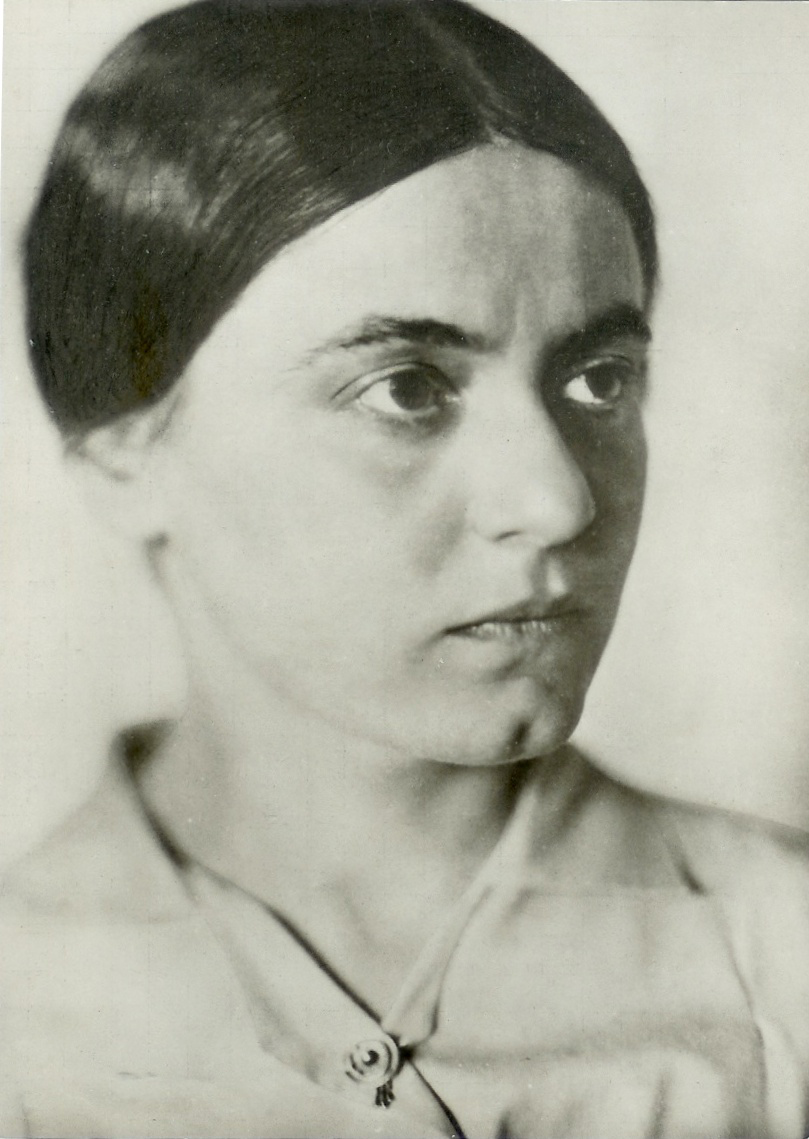
[Edith Stein]
3:AM: One of your interests has centred on the work of Edith Stein and Heidegger. Heidegger we’ve all heard about, but Stein is more obscure. So first could you tell us about her and her philosophical interests?
JO: I am not usually interested in the lives of philosophers, but I was utterly gripped by an old account I found of Edith Stein’s tumultuous and tragically brief life; and once I had begun research at Cambridge on Husserl (her doctoral supervisor) and Heidegger (her colleague and successor as Husserl’s research assistant), I decided to delve more deeply into her philosophical engagements with both of them. Stein emerges from a chaotic flux of philosophical movements in fin-de-siècle Germany as one of the most promising exponents of the early phenomenological movement. She was one of the first women in Germany to receive a doctorate, which was published soon after as On the Problem of Empathy, a work that continues to inform contemporary discussion on the topic. She was largely responsible, as Husserl’s research assistant, for editing and drafting large sections of Ideas IIandIdeas III.
Husserl himself treated her unconscionably by blocking her application for the thesis she needed to be eligible for a university position. To make matters worse, Heidegger passed off Stein’s editorial work on Husserl’s On the Phenomenology of Consciousness of Internal Time as his own, work that had required Stein to bring order to a chaotic jumble of barely legible notebooks and papers. Yet she handled this behaviour with extraordinary grace. To the astonishment of friends and colleagues, she converted to Catholicism in 1922 after reading Teresa of Ávila’s Autobiography before embarking on an unusual (and, but for some friendly guidance from the German-Polish philosopher Erich Przywara, largely self-directed) exploration of the writings of Aquinas and, later, some important Christian mystics. Antisemitic legislation forced her to resign a teaching post she had managed to secure in the 1930s, and subsequently prevented her from publishing her major work, Finite and Eternal Being. Smuggled out of Germany in 1936, she found refuge in a Dutch convent, but during the Nazi occupation of Holland she and her sister were arrested by the Gestapo and murdered on arrival at Auschwitz shortly thereafter.
My interest in Stein’s thought didn’t begin until I came across Alasdair MacIntyre’s characteristically incisive philosophical portrait of Stein, which offered a superlative overview of the many and various strands in German phenomenology and their influence on her early thought. But the book only charted her intellectual development to 1922, the year of Stein’s conversion and the point at which she began to immerse herself in Aquinas, which is just when things (in my view) begin to get interesting. The more I explored her work, the more I realised that she offers a unique critical perspective on that crucial transition in continental philosophy from Husserl’s transcendental phenomenology to Heidegger’s radicalized version of it. What drew me most of all to this perspective was her incisive (if idiosyncratic) attempt to synthesise the phenomenological method and high-scholastic metaphysics, two systems of thought that had initially struck me as irreconcilable. Dominique Janicaud famously referred (largely with regret) to the ‘theological turn’ phenomenology has taken in recent decades; one aim of my work on Stein has been to show that the turn occurs much earlier than Janicaud realises.
3:AM: Heidegger’s existentialism springs from what you call a ‘revisionist account of time.’ Can you sketch for us what Heidegger’s account was and why it was revisionary?
JO: It certainly was a revisionist account, comparable in its impact on the continental tradition to the impact McTaggart’s distinction between the A-Theory and B-Theory of time had on Anglophone metaphysics. Following Bergson, Heidegger rejected this chronometric view of time as an evenly punctuated succession of instances: there is, he insists, a philosophically relevant difference between ‘one o’clock’ and ‘lunch-time.’ In the first case, time is treated as an objective feature of the way the world is; in the second, time is a feature of the way we negotiate the world, of our ‘being-in-the-world.’ He doesn’t reject the first conception outright; but he does insist that the second is ontologically fundamental. Crudely put, Heidegger argued that most of the problems we encounter when thinking about time stem from treating it as a strange sort of substance, when it fact is no more than a way or ‘mode’ of being in the world. Grasping that distinction is, for Heidegger, the primary way in which I can modify my ‘fallenness’ in an inauthentic mode of temporality and embrace my everyday existence in the world in a way that makes it possible for me to orient myself towards my future.
3:AM: Heidegger put forward his revisionary approach and claimed that Christian theology was antipathetic towards time. Why did Heidegger think the theologians had an ingrained antipathy towards time?
JO: At one point Heidegger is surprisingly well-disposed towards theological conception of time, describing the theologian as ‘the true expert on time’ on the basis that she deals with the self (or ‘Dasein’) in its relation to God, to eternity, to that which lies beyond time. And, in a very early series of lectures on Pauline Christianity, he commends the raw sense of eschatological expectancy that he identifies among the Early Christians, especially in Paul’s first letter to the Thessalonians. There are unmistakable echoes of this existentially inflected account of time in his later analysis of Dasein’s temporal structure. But it is clear too that Heidegger came to endorse something close to a version of the ‘Hellenization Thesis,’ at that time a dominant orthodoxy in Germany thanks to the influence of Adolf von Harnack and, especially, his Marburg colleague and friend, Rudolf Bultmann. The thesis claimed that Greek philosophy and culture absorbed and flattened Early Christianity’s foundational insights; and ‘Hellenized’ theology was, in his view, no less complicit than Western metaphysics more generally in advancing a spuriously objective account of time.
The theologian’s notion of eternity became for him an illicit projection of the chronometric conception of time. A true grasp of eternity, he claimed, is closed to philosophy as such (and by ‘philosophy’ Heidegger means his radicalised rendition of Husserl’s phenomenology). No phenomenological analysis of time could ever yield a conception of eternity that was not, in the final analysis, merely derivative of our temporal being. Heidegger is well-known for claiming that most of Western metaphysics since Plato is guilty of the original sin of ‘onto-theo-logy,’ a word originally coined by Kant but that he deployed to describe the habit of hypostasising particular ‘ontic’ entities and projecting them onto a spurious metaphysical backdrop that is illicitly construed as ontologically foundational for all beings. In his view, theologians were no less guilty of this than philosophers. I argue, in fact, that much earlier on Heidegger diagnoses a special version of this error in theological notions of eternity, which I call ‘onto-chronology’: theologians, he claims, treat ‘created’ time as a series of present moments before turning that conception into a ‘sempiternal’ divine time, an unending series of present moments that purports to be foundational but is in fact tacitly derivative of ‘clock-time.’
3:AM: You think Heidegger was wrong on this and you use insights from Edith Stein to argue back. She takes a phenomenological approach doesn’t she, linked to her reading of Aquinas. Can you sketch what she argued against Heidegger?
JO: Stein sympathised with Heidegger’s analysis of Dasein as ‘thrown’ into the world and his claim that the radical contingency of my existence—the brute fact that I might not have been—attends my every mood, my every project, and that in some fundamental way my existence is not something I can control any more than I can fix beforehand the conditions into which I have been thrown. At the same time, she had read enough Augustine and Kierkegaard by this point to recognise that Heidegger was overplaying the originality of this insight. And she also saw that it was at least an open question whether the sense that I am in no way responsible for my existence means that I am alienated from the source of my existence, or that there could be nothing more fundamental on which my existence might depend. It is here that Stein rehearses Aquinas’s early modal argument in De Esse et Essentia, but gives it a striking phenomenological twist. Phenomenological awareness of my ‘thrownness’ into the world presupposes, she insists, a dependence on something more metaphysically robust. Stein saw that phenomenologically attuned introspection of the kind we find in the finest mystical writings suggest that our finitude in time need not exclude (as Heidegger insists it must) the possibility that we participate in the infinite fullness of the divine life.
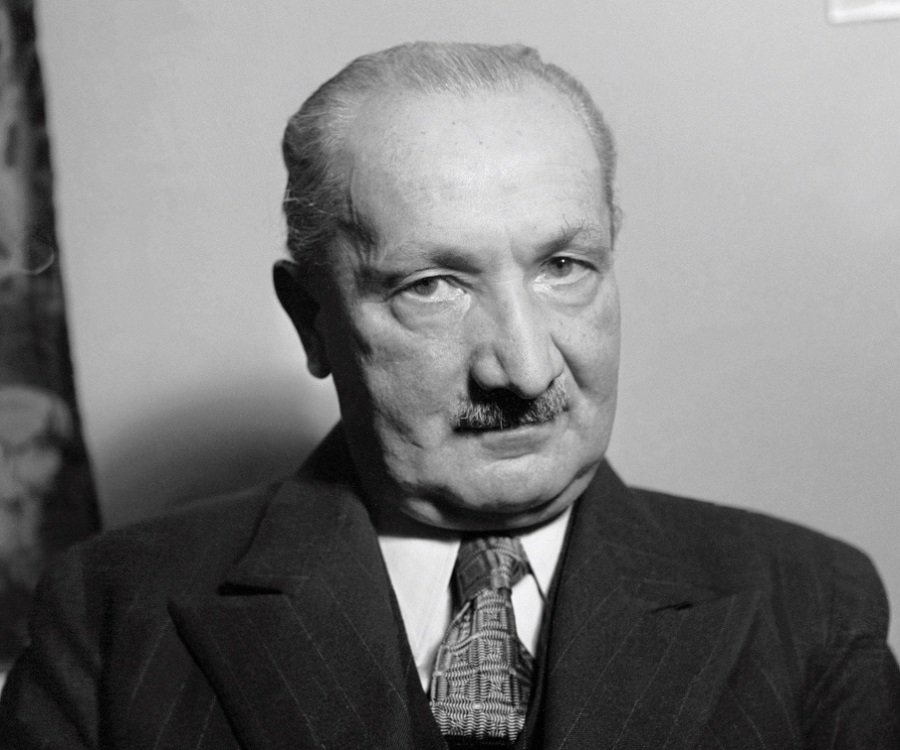
[Heidegger]
3:AM:You say ‘Stein’s theological engagement with Heidegger hints indirectly at the falsity of the dilemma between a commitment to the broadly ‘essentialist’ metaphysics of classical theism and an ‘existentialist’ attunement to the phenomenology of lived experience.’ Can you show how she does this? Is she right?
JO: It is notoriously difficult to distil existentialism into a set of substantive philosophical commitments, but we can perhaps treat Sartre’s well-known axiom that ‘existence precedes essence’ as offering at least a negative definition of the existentialist outlook. At the very least, existentialism defined itself against Western philosophy’s perennial quest for an inventory of fixed and unchanging metaphysical furniture. Essences were almost always grounded in the divine mind (or else in some ersatz version of the divine mind); but since of course belief in God (or God’s substitutes) can no longer be taken seriously, essences could not be grounded in anything other than our own conceptual schemes, which are no less contingent and evanescent than the human beings who construct them. In slipping their metaphysical moorings, essences so grounded could no longer provide the fixed-points they were intended to provide.
Now Heidegger sharply dismissed Sartre’s awkward attempts to dragoon him into the existentialist movement; but his own stance towards essentialism was no less sceptical. For him ‘essence’ was a tool for different epochs in Western thought to hypostasise Being’s self-disclosure (form, substance, God, the transcendental grounding of sense-experience, the dialectical mediation of Geist, the historical processes of production, the will to power, and so on). Stein’s resistance to the rejection of essence taps into various strands of the Christian theological tradition—especially Augustine and Kierkegaard—to show that the essence/existence dichotomy is a false dilemma. If we take seriously French existentialism’s later stress on ‘alienation,’ Stein would have asked: alienation from what? She claims that it could not be the ‘thrown’ phenomenological subject that sustains its conscious life; consciousness is, rather, received being, being as a gift, the paradigmatic acte gratuit that places me in my world and sustains me from moment to moment. Was she right? At one level, that’s an impossible question to answer, because it’s hard to think what an argument that she is wrong might look like. How could a person be mistaken about their deepest existential intuitions? One might say that she could no more be argued out of her introspective sense of participation in the divine life than the sceptic could have dislodged G.E. Moore’s belief that his hands were really his hands. If pressed, I suspect she would have said that her conviction that existence depended on divine gratuity would always be more firmly rooted than the premises of any argument to the contrary.
3:AM: Is all this rooted in a Kantian approach to metaphysics – and does that make Aquinas a proto-Kantian rather than an Aristotelian metaphysician?
JO: Stein came to be a great deal more open to metaphysically substantive conclusions than Kant’s transcendental idealism (or indeed Husserl’s phenomenological transformation of the critical philosophy) could ever accommodate. Truths about divinity, freedom, and the soul all, on Kant’s view, amount to ‘regulative’ ideas and the temptation to insist that they are substantive (or ‘constitutive’) truths is precisely the mistake Kant is so keen to repudiate in the Transcendental Dialectic. That said, Stein does share Aquinas’s reticence in offering a positive account of God ‘in se’ (in himself); and some have argued that this sort of apophatic restraint is echoed in what one scholar has called ‘Kantian humility’ about things ‘an sich’ (in themselves), including the regulative ideas of God, freedom, and the soul. But Stein would not go so far as Neo-Thomists such as Antonio Rosmini or Joseph Maréchal, who tried in various ways to characterise Aquinas’s thought as Kantianism avant la lettre. Their own reading of Aquinas—‘Transcendental Thomism’—strikes me as an ingenious but, in the end, profoundly misguided synthesis that is now largely rejected, not least because it fails to do justice either to the unabashed realism of high-scholastic metaphysics or to transcendental idealism itself.
3:AM: How do you assess Heidegger’s own critique of Aquinas on truth: did he get Aquinas wrong?
JO: It’s hard to avoid the conclusion that he did. I argue that Heidegger does seem to have incurred a significant conceptual debt to Aquinas’s reflections on truth, even if that debt was repaid with Destruktion. I have tried to draw attention to two series of lectures he delivered at Marburg as he was embarking on early drafts of Sein und Zeit, both of which closely engage Aquinas’s De Veritate. His misreading is attributable partly to his exposure to the so-called ‘sawdust’ Thomistic apologetics so dominant in the Catholic seminaries of his day (he attended several of them), and partly to his attempt to shoehorn Aquinas into his procrustean genealogy of Western philosophy as a history of obliviousness to the question of ‘Being.’
His central mistake is a conflation of the medieval conception of truth as adaequatio intellectus ad rem with a correspondence theory of truth. Very roughly, by ‘adequation’ Aquinas means the ability of a thing to bring about knowledge of itself in the intellect, which seems strongly to imply that his focus rests on the truth of being itself (an account that would appear to be much closer to what Heidegger means by treating truth in terms of ‘unconcealment’). That reading certainly coheres with Aquinas’s remarks elsewhere that ‘truth and being do not differ essentially’; and that metaphysical starting-point could not be further from the assumptions underpinning contemporary correspondence theories of truth, which, as I said, is the root of Heidegger’s confusion.
3:AM: Another aspect of Heidegger that Stein critiques is his attack on Descartes’s notion of the self. Metaphysics is supposed to crumble at the hands of the master in Sein und Zeit. Stein wasn’t so convinced was she? – she thought he merely transposed the Cartesian ego into a phenomenological key. But others have argued this too – so what’s special about her critique? Is it the theological twist?
JO: You’re absolutely right: the complaint that Heidegger banishes a metaphysics of the subject only to let it in through the back door is a familiar (and contested) one. But as far as I can tell, Stein was one of the very first to raise these criticisms, even if her persecution and eventual murder by the Nazis meant that they were not published till long after other responses to it had begun to emerge. So the originality of her objections has been underplayed. And yes, her immersion in Christian theology meant that she was more alert than most of Heidegger’s earliest critics to his incursions onto theological terrain and to his turning many Christian motifs—‘fallenness, ‘care,’ ‘guilt,’ ‘thrownness,’ and so on—into a philosophical patois that never quite casts off its theological freightage, however much he insists on its ontological priority to theology. Her attunement to theological ideas and motifs meant that she was much more alert and trenchant in her criticisms of Heidegger’s various trespasses across the terrain of the Christian philosophical tradition. In my view Stein makes the theological palimpsest hidden beneath Heidegger’s secular script more legible than his other critics. We can begin to see in her work why the relationship between phenomenology and theology would prove to be such a fruitful one in subsequent decades.

[Art: German School, 18th Century]
3:AM: You discuss teleology as a theological problem in Kant’s pre-Critical thought. So did this perspective not survive in Kant’s critical thought?
JO: Anglophone scholarship on Kant has tended to give the impression that transcendental idealism sprang virtually fully-formed from his mind during one of his morning constitutionals in the 1770s. Yet Kant was producing a sizeable and sophisticated body of work on a wide array of problems for more than three decades before the publication of the first Critique in 1781. Some of that work is not terribly interesting from a philosophical point of view, but a great deal of it is worthwhile and, crucially, provides a fascinating glimpse into the various shifts in Kant’s early thought motivating the Copernican turn, which helps to unravel some of the complexities of the critical philosophy. As a new generation of scholars on Kant are beginning to show—I think here especially of the brilliant work of Christopher Insole and Edward Kanterian—one gets a much more fine-grained insight into the earthquake of the first Critique by attending to the various tectonic tensions in his pre-critical thought, especially those tensions generated by his theological commitments. I think that Nietzsche (in some ways one of Kant’s most astute interpreters) was onto something when he described Kant as a ‘cunning Christian’ whose success was ‘merely a theologian’s success.’
What intrigues me about Kant’s treatment of teleology is—first—its mixture of scepticism and respect—second—that it remains largely unaffected by the critical turn. In both the Beweisgrund (1763) and the first Critique (1781/7) he repeatedly repudiates the comically naïve attempts of so-called ‘physico-theologians’ to derive theistic arguments from features of the natural world, such as Ahlwardt’s physico-theology of thunder (Brontotheologie, 1746), Denso’s physico-theology of grass (Chortotheologie, 1741), or (my personal favourite and a bestseller) Seidel’s physico-theology of silkworms (Bombyco-Theologie, 1718). These works proved to be immensely popular not only with philosophers and scientists, but also the general public. Here Kant renders a great service to theologians, who can and should welcome his insistence right across the critical turn that searching for an apodictic design-proof of God’s existence is futile from the outset and who are rightly irritated by the implausibly anthropomorphic conceptions of God that animate this quest. This would include the picture of divine agency animating the so-called ‘Intelligent Design’ movement, whose appeals to alleged instances of ‘specified complexity’ mirror with uncanny precision the arguments advanced by the targets of Kant’s criticisms.
Decades before Darwin, Kant recognised how dangerous attempts to achieve theoretical certainty of God’s existence via scientific speculation would be to the theologian’s credibility. Most obviously, such attempts always end up inferring a demiurgic architect of the world, and not the transcendent source of all being. To this extent Kant helps to clarify and buttress the classical conception of God, whatever one’s stance on transcendental idealism itself; and I am deeply sympathetic to the view that at least part of the attraction of transcendental idealism for Kant was that it safeguarded religious commitment from the naïve forms of natural theology that were so prevalent in eighteenth-century Germany.
3:AM: I’m intrigued by what you call ‘Cartwright’s escape’ in the context of atheism and the rejection of the philosophy of powers. Could you sketch what’s going on here, and what your perspective is?
JO: As readers of your excellent interviews with metaphysicians such as Jonathan Lowe, Anna Marmodoro, Stephen Mumford, and Tuomas Tahko will be aware, there has been a resurgence of interest in Aristotelian approaches on a wide array of topics—substance, essence, grounding, kinds, universals, causation, and so on. It would be an exaggeration I think to suppose that it is anything close to a prevailing orthodoxy, but it’s not really contestable that many metaphysicians in the Anglophone tradition have begun to question the Humean assumptions that have loomed large in the analytic tradition.
One especially lively area of dissent that has interested me is the metaphysics of lawhood. But I begin by looking at the convergence between Neo-Aristotelians such as Nancy Cartwright and Neo-Humeans such as Jonathan Schaffer on the view that the ‘top-down’ realist accounts of laws (as quasi-causal necessitation relations between categorical properties) proposed by David Armstong and others are naturalised relics of a bygone intellectual culture broadly committed to the existence of a divine lawmaker. I share the view that Armstrong-type accounts do indeed amount to ersatz divine lawmaking. But I then turn to consider Cartwright’s ‘bottom-up’ account that identifies the modal content of law-statements with dispositional properties, one that ostensibly permits its supporters to ‘escape’ the theological implications of the top-down account without abandoning a realist stance towards regularities in nature (I should note that although Cartwright’s capacities-based account is quite distinctive, my argument applies to almost every account that adopts her basic approach). But I then make the obvious point that the theology animating a Cartesian-Newtonian philosophy of nature in effect construes God as a kind of cosmic superintendent, a view that cuts sharply against patristic and high-scholastic conceptions of God’s relationship to natural world, which had advanced ‘bottom-up’ accounts of natural order long before the rediscovery of Aristotle that took nature’s patterns and regularities to be grounded in the powers and liabilities that objects possess in virtue of the kind of objects they are.
In the terminology that Augustine borrows from the Stoics, nature is patterned with rationes seminales, principles of intelligibility hardwired into the created order. I argue that there are various reasons for thinking that this kind of theistic framework is more theoretically attractive than dispositionalist accounts of laws that insist on being acceptable to the metaphysical naturalist. As I argue at greater length in a forthcoming monograph, dispositional properties do not sit well with naturalism (and not only because of the familiar Humean injunction against ‘occult powers’). Dispositional properties generate, I suggest, a pressure to platonise, especially where they are construed as universals (as they typically are); but since positing platonic entities generates at least as many puzzles as it solves (some familiar, some less so), I then turn to a theistic version of dispositionalist laws that eliminates universals altogether and, in so doing, resolves a surprising number of difficulties confronting standard realist accounts. Now of course such a conclusion may be grist to the Humean mill by way of reductio ad theologiam. If theism is the price to pay for nomic realism, they will say, steer clear of nomic realism! But, I argue, for the sizeable (and growing) number of philosophers who hold that realism offers the best hope of underwriting the explanatory power, inductive strength, and counterfactual resilience of scientific statements of law, the price is right.
3:AM: Because your work in continental philosophy seems imbued with theological concerns, is it your view that much of what is called continental philosophy is actually a kind of critique of analytical theology?
JO: One of the main reasons I enjoy working at the intersection of philosophy and theology is that one tends to be more insulated from the various divisions affecting philosophy itself. And that is especially true of what is, from a historical point of view, the very recent split between the continental and analytic traditions. I try hard in my work to take both traditions seriously, and to develop a degree of ambidexterity in engaging their various contributions to fundamental philosophical debates, especially those involving issues of theological concern. It’s hard to dispute that there has been an astonishing revolution in the range and quality of serious analytic work in philosophy of religion over the last fifty years, work that has been of great benefit to academic philosophy more generally. Indeed I think it’s also clear that ‘analytic theology’—about which my former colleague Bill Wood (among others) has written very well—has the potential to clarify a whole array of vexed questions in contemporary theology and it’s immensely gratifying to see things developing institutionally on this front at the Centre of Philosophy of Religion at Notre Dame in the States and, more recently, at the newly founded Logos Institute for Analytic and Exegetical Philosophy at St. Andrew’s in Scotland.
But it’s difficult too to disagree with the thrust of your question. At its best, the continental tradition does check the perennial habit of putting too much confidence in what even the most analytically rigorous philosophy can contribute to the life of faith. Connecting continental philosophy to theological concerns is also much more sympathetic to the place of subjective experience and existence in making sense of things and is less wedded to the view that reality is, as it were, spread out in front of us awaiting assembly into the most comprehensive and fine-grained philosophical system we can muster. I am struck too by the ease with which dialogues between philosophical theology and continental philosophy tend to be much more open to literature and the imagination, as well as to social and political concerns. For all these reasons, I suspect that most theologians would choose Paris over Oxford as the place to have productive interactions with secular philosophers.
3:AM: And for the readers here at 3:AM, are there five books you could recommend that will take us further into your philosophical world?
JO:
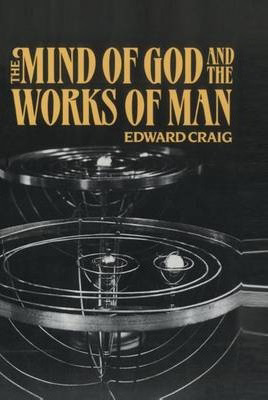
The Mind of God and the Works ofMan— Edward Craig
Although perhaps best known for its controversial treatment of Hume, this book captures better than any other the close conceptual complicity between theological accounts of God and philosophical models of human understanding from the seventeenth century onwards. What Craig distils so well in his ambitious genealogy is the extent to which modern philosophy remains haunted by the theological ghosts it worked so hard to exorcise, and so underscores very effectively the point that to do good historical work in philosophy requires a degree of theological literacy that is becoming regrettably rare.
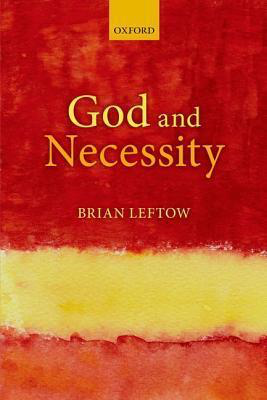
God and Necessity — Brian Leftow
An endlessly stimulating, challenging, and wide-ranging attempt to offer a complete theistic theory of modality. In my view it is the most impressive exercise of analytic philosophy of religion to have been undertaken for many years. Leftow does metaphysics of the first order and displays the quality of tools available to the classical theist when confronting a whole array of philosophical problems.
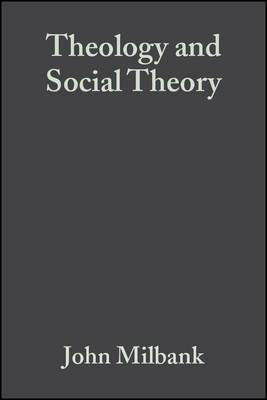
Theology and Social Theory — John Milbank
To my mind this book remains, nearly thirty years on, a model for critical theological engagement with secular philosophy. It was one of a small handful of books that convinced me to leave the law and take up graduate work in philosophy and theology. Champions and detractors alike accept that it injected the kind of confidence and dash into Anglophone theology that it had not had for many decades. Over time, it opened up all sorts of crucial tributaries in political theory, aesthetics, hermeneutics, and doctrinal theology. If parts of the book now seem somewhat dated, that is only because of it was so successful in eroding the influence of so many of its targets.
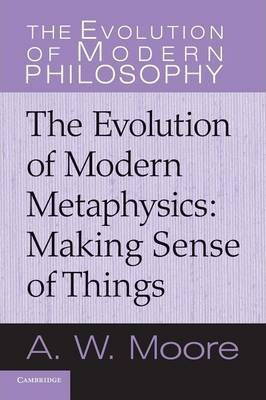
The Evolution of Modern Metaphysics: Making Sense of Things – A.W. Moore
I find myself returning again and again to this magisterial history. It is a remarkably capacious and sympathetic account of the development of metaphysics from Descartes to Deleuze that somehow folds painstakingly attentive accounts of nearly every significant thinker in that period into a compelling conceptual narrative. Best of all, Moore refuses to confine his history to an analytic silo: he is as informed and generous in engaging with Heidegger and Derrida as he is in handling Carnap, Quine, and Lewis.
![Knowledge and Faith (The Collected Works of Edith Stein, vol. 8) by [Stein, Edith]](https://files.cdn-files-a.com/uploads/2029468/2000_5c963b3dc378b.png)
Knowledge and Faith – Edith Stein
Although it is a slender and eclectic collection of Stein’s occasional writings, this book provides a convenient introduction to her philosophical and mystical theology (there are some fascinating remarks in the second half on the writings of Pseudo-Dionysius the Areopagite). It also offers a snapshot of the connections Stein traces between phenomenology and scholastic thought in the form of an imagined fireside conversation between Husserl and Aquinas. But she also captures very effectively indeed the tensions between the self-sealing subjectivism of transcendental phenomenology and what she calls the ‘theocentric’ metaphysics of high-scholasticism.
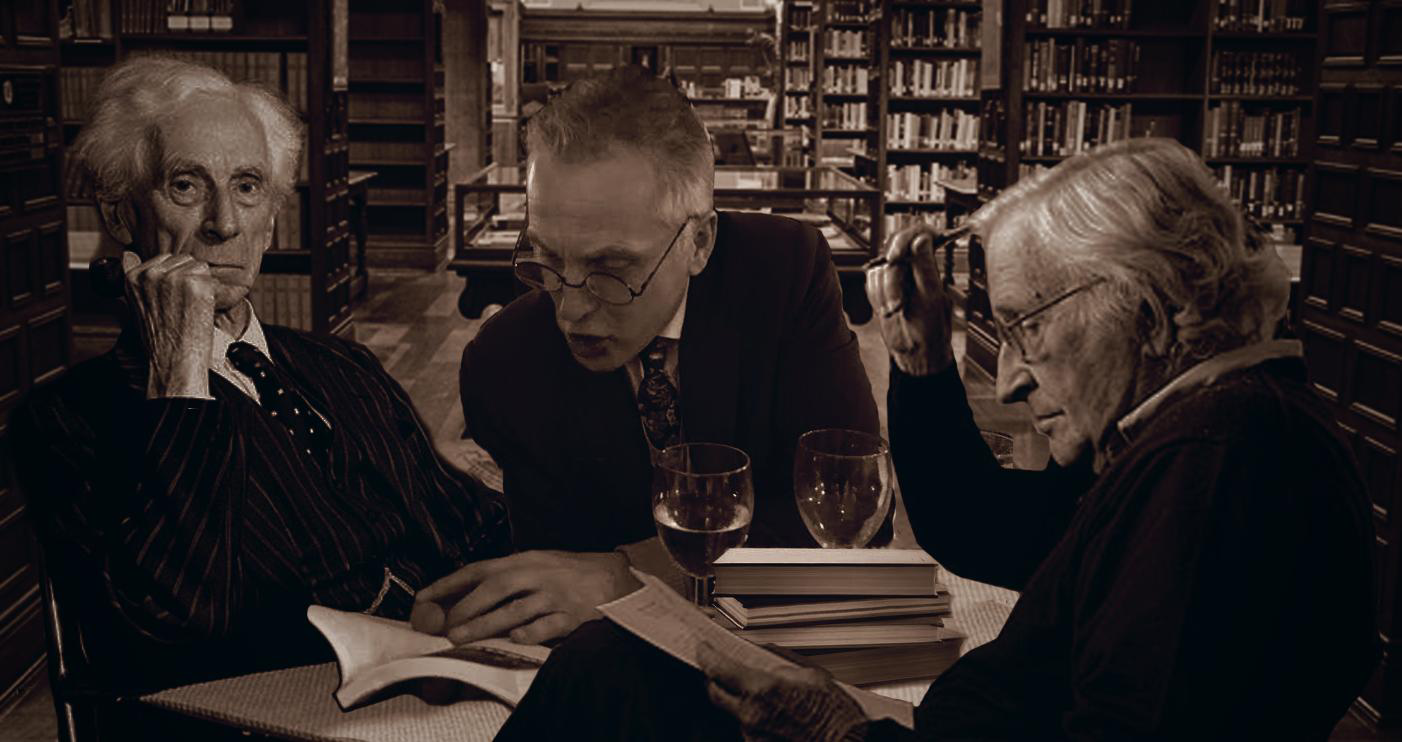
ABOUT THE INTERVIEWER
Richard Marshall is biding his time.
Buy his new book here or his first book here to keep him biding!
End Times Series: the first 302